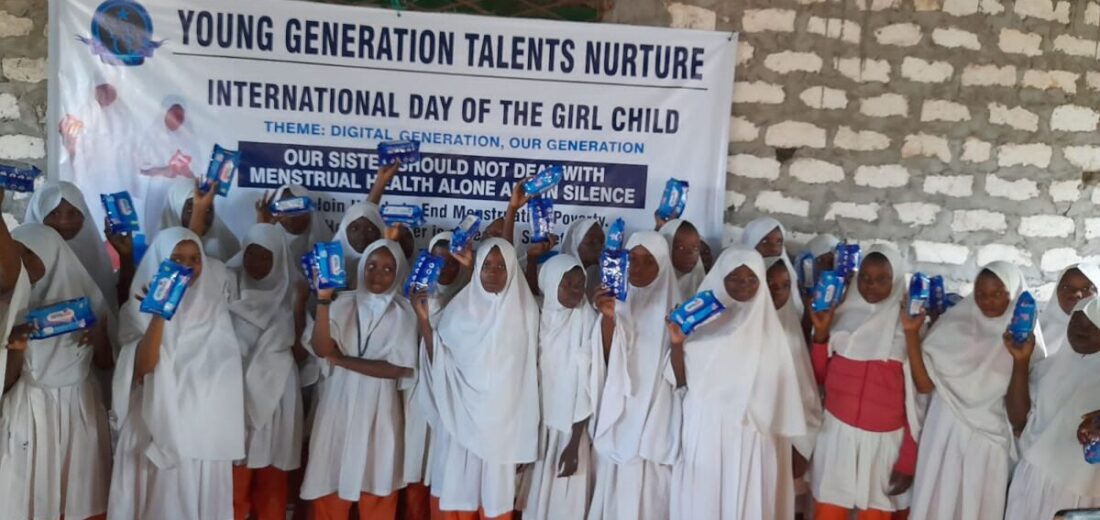
Building from Within
In a small corner of coastal Kenya, one youth-led initiative is rethinking what development looks like. This is faith-based community development—no flashy budgets or empty promises, just savings groups, football circles, and the quiet strength of faith. Here, progress is not built by erasing identity but by anchoring it in trust, discipline, and community, proving that faith can be a foundation, not a barrier, for change.
Juma never set out to lead anything. Leadership, if it can even be called that, found him slowly, sometimes painfully, as he tried to make sense of the life he was born into. Today, he runs Young Generation Talent Nurture, a grassroots initiative in Kenya’s Kwale County that does not promise grand solutions. What it insists on are small, real changes that people can own.
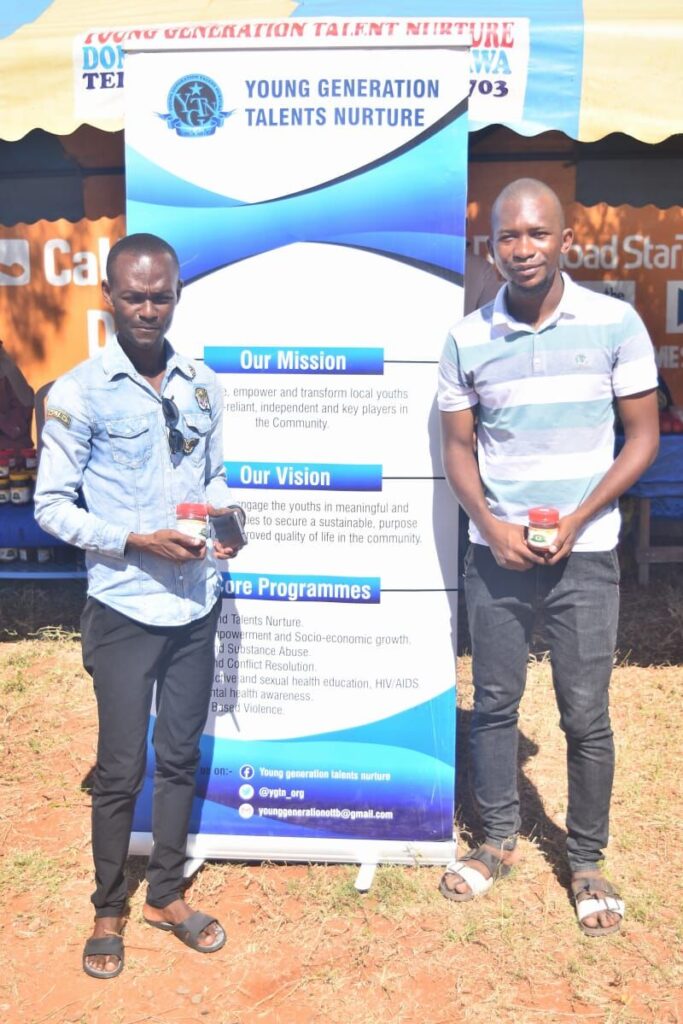
For Juma, faith has never been a barrier to development. It has always been its starting point. The discipline, compassion, and sense of duty instilled in him from a young age were not abstract spiritual ideals, they became practical tools. Tools for building trust, guiding young people toward leadership, and helping communities reclaim their voice and agency.
He remembers the sharp edge of poverty with clarity. His father left when he was still a child. There was no dramatic exit, just the quiet finality of a door that closed and never reopened. His mother was left to carry everything. She sold coconuts, charcoal—whatever would keep them afloat. And Juma helped however a boy could: waking before sunrise to fetch water at the borehole, balancing the heavy jerrican on his head for the long walk home. These early struggles would later shape his belief in faith-based community development as a path rooted in resilience and lived experience.
School was never guaranteed. Even when Juma managed to get there, it was often on an empty stomach, barefoot, his books crammed into a torn plastic bag. He remembers standing at the classroom door, hesitating, ashamed of his tattered uniform, the smell of smoke from the morning’s fire clinging to his clothes. He knew some boys would wrinkle their noses others might laugh. But he went in anyway. Because for him, school was not a right. It was a chance.
He sat on rough wooden benches, fighting off sleep, hunger gnawing at his insides as he tried to follow the day’s lessons. He watched the chalk squeak across the blackboard, and copied every word carefully, believing—desperately—that each letter might be a step toward something better. Something safer than the life waiting outside.
Evenings were lit only by the cooking fire. He remembers his mother’s lined face, silent as she mentally calculated which need could wait until tomorrow. There were many nights with nothing to eat. He would watch her pretend she was not hungry so the children could eat whatever little there was. The sound of water hissing against thin ugali in the pot still echoes in his memory, along with her voice saying softly, ‘We will make do,’ a smile on her lips that never quite reached her eyes.
He watched his friends disappear from the classroom, one by one. Some failed exams they could not afford to retake. Others were pulled into early marriages or left for Mombasa to hustle, only to return with nothing but debt and disappointment. They were not stupid or even reckless. They were cornered—trapped in choices that were not really choices at all.
Juma remembers their faces: the forced smiles, the embarrassed deflections when someone asked about school. He knew they carried dreams too, folded like old letters no one read anymore, buried under the daily weight of survival and small, constant humiliations.
‘They weren’t lazy,’ he says quietly. ‘They just could not see any other way.’
As he grew older, he watched development arrive in his village riding in air-conditioned four-wheel drives, logos of foreign NGOs printed on the doors. Well-meaning strangers pitched tents, served bread and sweet tea, and held meetings beneath the coastal sun. They distributed mosquito nets, handed out seed packets, and ran workshops labelled ‘sensitisation.’
Juma was often there, helping with logistics, collecting attendance sheets, and rounding up neighbours for a small allowance. He remembers how people would dress in their best clothes for the workshops, lining up chairs under the heat, and listening patiently as experts explained programmes in polished Swahili. Sometimes, he caught a glimmer of hope in someone’s eyes at the idea of drought-resistant seeds or a new savings group.
But too often, that spark dimmed by the time people walked back home.
He saw the good in the projects. But he also saw how easily they vanished. When the donor funding dried up, so did the mosquito nets—torn and never replaced. The seeds shrivelled in neglected gardens. Training manuals were forgotten, gathering dust on wooden shelves. And when the next crisis came, nothing had really changed. Families still relied on harambees, borrowed from neighbours, begged from relatives, and prayed for miracles.
‘We got used to waiting for someone to save us,’ he says, ‘that we forgot how to save ourselves.’
He did not hate the NGOs. Many meant well with a few leaving something that lasted. He remembers one elderly man joking, ‘At least they taught us to wash our hands,’ before breaking into laughter. It was meant lightly, but it stuck with Juma, maybe because it was not entirely a joke. Handwashing fits into longstanding cultural and religious traditions of cleanliness tied to prayer and respect. Small things mattered.
But Juma also knew the real issue ran deeper. The real poverty was not only in people’s pockets; it was in their sense of agency. The belief that they could change anything at all. That they had power.
At first, he thought the answer was to lecture. He stood in front of youth groups, telling them to stop drinking, to respect themselves, and to think long-term. He used the language he had absorbed in workshops: empowerment, sustainability, community-led development. They clapped politely. They nodded. But their expressions were distant—too familiar. The same quiet, strained look he had seen on his mother’s face whenever someone told her to ‘be patient’ about school fees she could not pay.
‘I thought they were the problem,’ he says. ‘Then I realised; I did not even know what they needed.’
He sat for hours on benches under mango trees, in church courtyards, outside mosques—places where community and faith naturally intersected—listening at the water points as women lined up to fill their jerricans. He asked quiet questions: What worried them? What did they dream of for their children? What would truly help?
The answers came in soft, tired voices, but they were always the same: school fees. Hospital bills. Enough money for soap, for salt; for the dignity of not having to ask. Young men admitted they had nothing to do. No work or prospects. Their days passed in a haze of drinking, borrowed pool games, and fighting over nothing. What Juma heard wasn’t just need—it was a quiet call for faith-based community development that listened first and responded with respect. One elderly woman told him, ‘We know how to save our children. But no one will lend us even fifty shillings.’ A young man said, ‘I wake up and there is nothing, so I go back to sleep.’
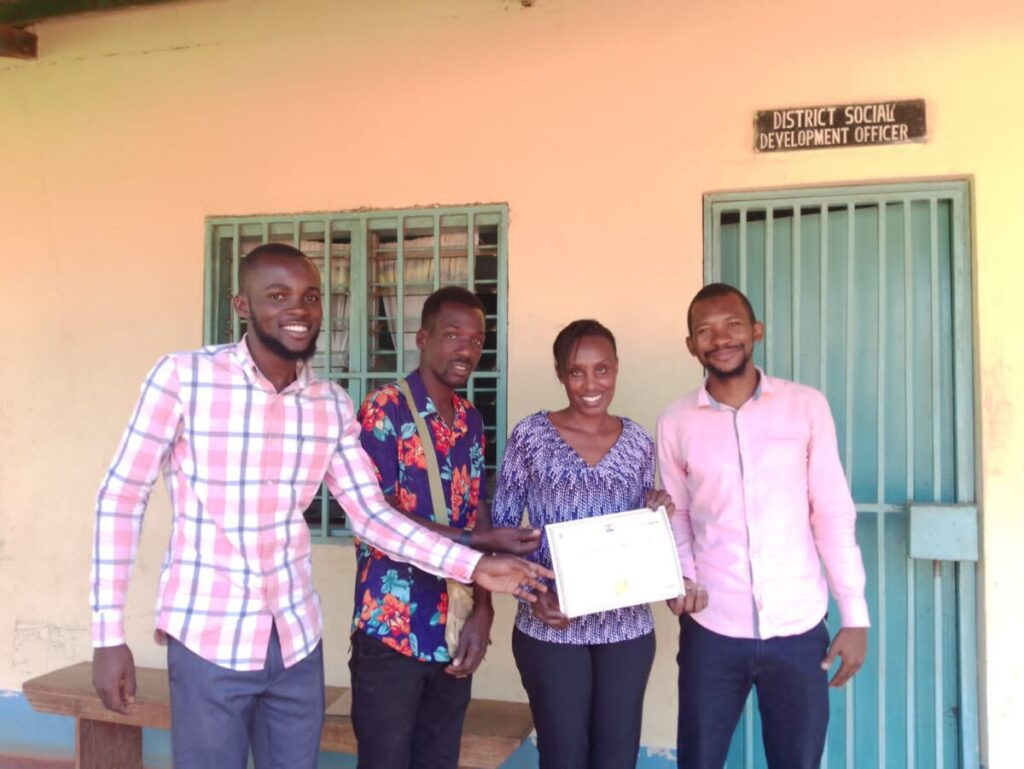
Those conversations shifted something in him. He began to see that people were not waiting for handouts, they were waiting to be seen. They wanted someone to take them seriously. So, when the opportunity came to work with A.D.S Pwani, Juma was ready to try a different approach. The organisation supported chamas; small community savings groups. It clicked instantly.
He understood the power of that model. Harambees were familiar; everyone knew how to raise emergency funds in a crisis, even when it meant swallowing pride. But chamas were different. They were about planning, discipline, and the quiet strength of small, consistent steps.
He focused on young mothers, many of them no older than he was, raising children alone after dropping out of school. They had no access to banks, steady income, or a safety net beyond the goodwill of relatives who often had little to give.
Juma went homestead to homestead, sitting with young mothers under trees, in the shade of church halls, or mosque courtyards. It was a setting that reflected the heart of faith-based community development. He explained the idea: saving even small amounts each week, lending to one another under clear rules, and tracking every coin with accountability and care.
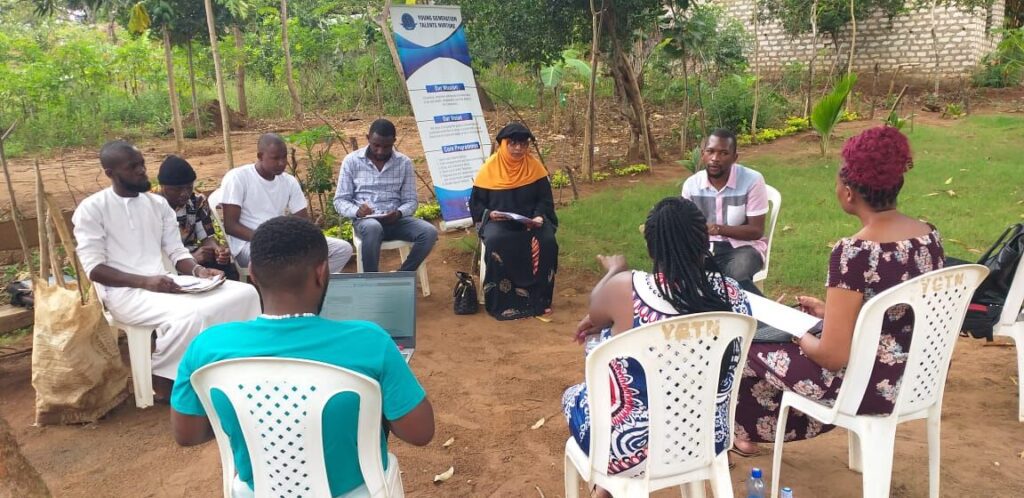
It was not easy. They did not trust him—not at first. Many did not even trust each other. He still remembers one woman who refused outright, saying, ‘We will fight over the money and curse each other.’ But slowly, the groups began to form. Coins were counted into battered notebooks. Rules were written and enforced. Arguments came, but so did resolution; through careful words, long silences, and learning to listen.
Then something deeper began to shift. Beyond the savings and the loans, Juma saw confidence return. A woman used her savings to buy shoes for her son. Another opened a tiny kiosk. A third paid for medicine without knocking on a neighbour’s door. This was the quiet impact of faith-based community development—practical, personal, and rooted in dignity. And slowly, laughter returned; cautious at first, almost shy. But real.
‘It was not about getting rich,’ he says. ‘It was about feeling in control.’ And in those circles, something else quietly changed: religion was no longer a dividing line. Christian and Muslim women sat side by side, heads bent over the same handwritten ledger. No one cared what prayer you had said that morning. They cared that you showed up. That you kept your word. That you saved.
‘That is the thing here,’ Juma says. ‘We all have faith. It guides how we live. But in the chama, faith showed up as trust—keeping your word, showing up, honouring each other.’
That trust sparked something in him. But it also revealed a gap. While the mothers were saving, and building confidence and stability, the young men were still adrift. Juma saw them loitering at kiosks, drunk by midday, arguing over pool games they could not afford. No one talked about it openly. Mental health was still taboo, dismissed as laziness, weakness, or worse, witchcraft. He wanted to reach them, too.
That is when he discovered Samba Sports Youth Trust, a local initiative using football as a bridge to harder conversations. Juma learned how to organise matches not just as recreation, but as a way in. A reason to gather. A reason to stay.
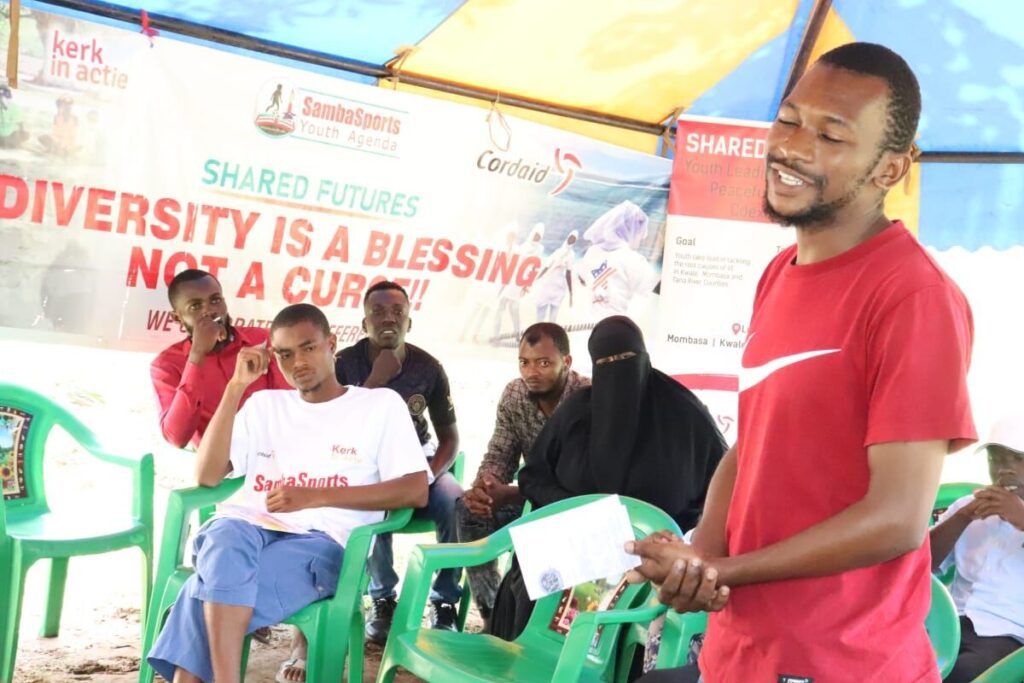
After the games, they sat in circles on the grass. No lectures. Just questions. They talked about drugs. About anger. About feeling like nothing. At first, the boys laughed it off. Called it childish. But eventually, one would speak and the rest would listen. They heard each other admit to drinking to forget, to fighting because it made them feel in control, to stealing not out of greed but out of despair.
He remembers one boy breaking down in tears, confessing that he had hit his mother. Another admitted, in a low, ashamed voice, that he had stolen from his aunt out of desperation. No one laughed. No one mocked. The circle held the silence together; heavy, understanding, and real.
They were not ‘fixed’ overnight. But something shifted. The fights grew fewer and less cruel. Some boys began helping at home again. A few quietly stopped drinking altogether. ‘Sometimes,’ Juma says, ‘all it takes is one honest talk in a place where you are not judged.’
After years of working alongside others, Juma wanted to build something rooted fully in his own community—something local and lasting. He had seen how chamas nurtured discipline and how football circles built trust. But he wanted to go further.
That is how Young Generation Talent Nurture began. No big budget or office. Just a belief: that young people in Kwale already had talent, and that what they needed most was someone to believe in them.
He invited local artisans to share how they had built their businesses. He brought county officials to explain how to register businesses and apply for grants. He organised community showcases where young people could perform music, present their crafts, and speak their goals aloud.
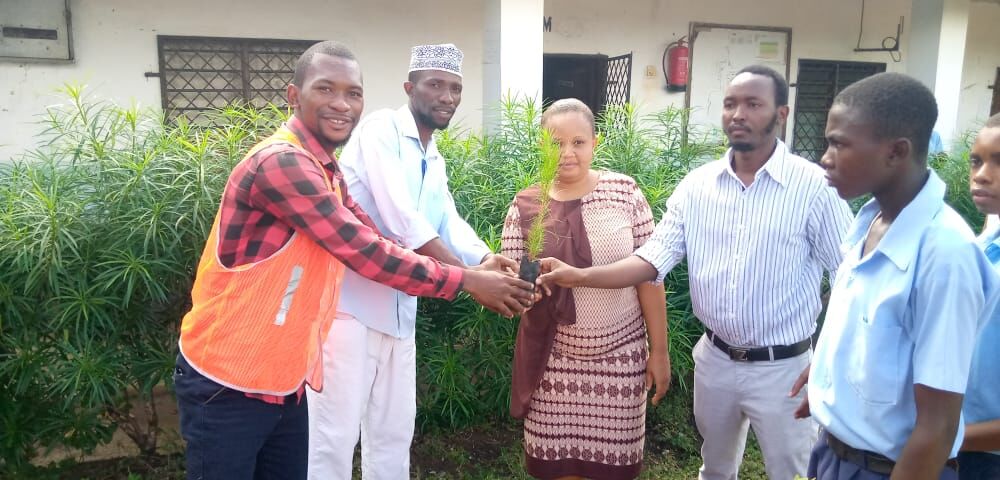
He insisted on discipline: arriving on time, finishing what you start, respecting others. These were principles he had learned not just from workshops, but from sermons, mosque teachings, and childhood chores done with quiet reverence.
It was not glamorous. It was slow and often frustrating. He remembers waiting an hour for a single participant to show up. Days when meetings derailed over money. Moments of mistrust and accusation. But he did not walk away—because this was faith-based community development in its truest form: patient, messy, and rooted in real lives.
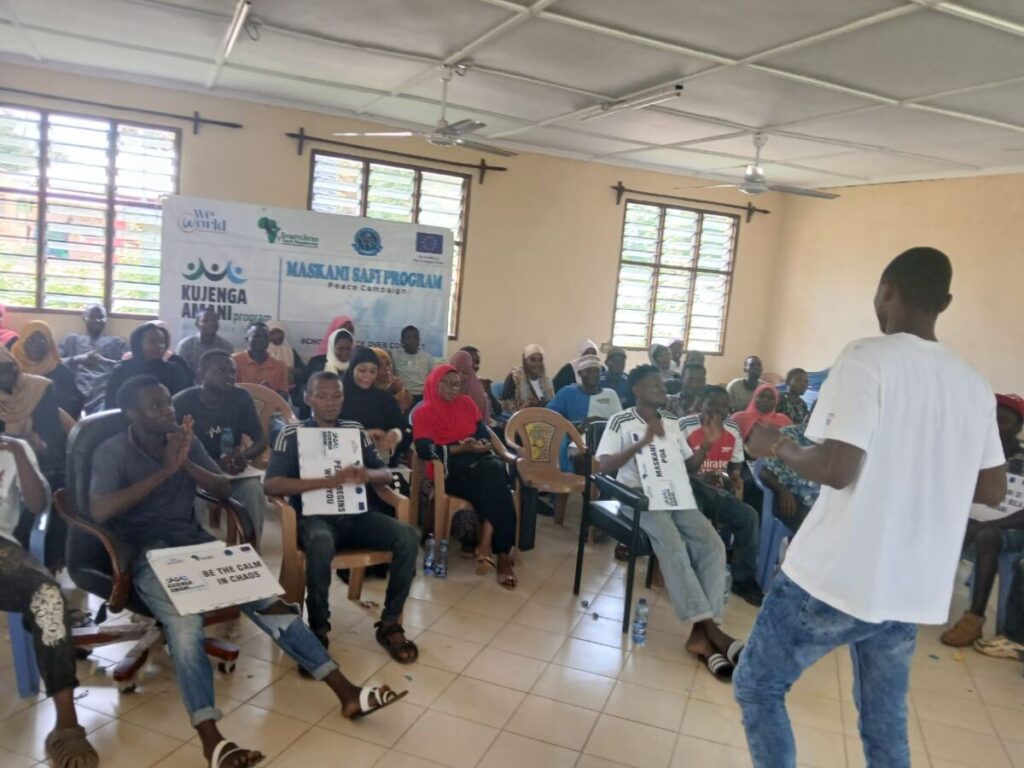
‘We did not give them money,’ he says. ‘We gave them permission to believe in themselves.’
And always, behind the scenes, were the values he had carried from childhood. The lessons he learned watching his mother’s sacrifices. Through moments like listening to older men share Quran verses in the mosque courtyard or helping sweep the steps of the village church before Sunday services, he came to understand what faith-based community development could look like—quiet, grounded, and lived.
Kwale had never been a place of just one faith. Funerals and weddings, sickness and harvest; these moments pulled people together across religious lines. No one asked which God you prayed to before giving what little they had. Compassion, solidarity, and service were not exclusive doctrines. They were lived habits—the quiet roots of faith-based community development.
That was the spirit Juma wanted Young Generation Talent Nurture to embody. He did not preach. But he insisted on the values every tradition in the village already shared: honesty, discipline, service, and care for the vulnerable.
‘We are Muslim, Christian and traditional here,’ he says. ‘But we all know suffering and we all know helping. That is what matters.’
He believes that if Kwale’s young people can hold onto those values while learning to save, plan, work, and above all, believe in their own worth, they will not need to wait for the next NGO or government programme.
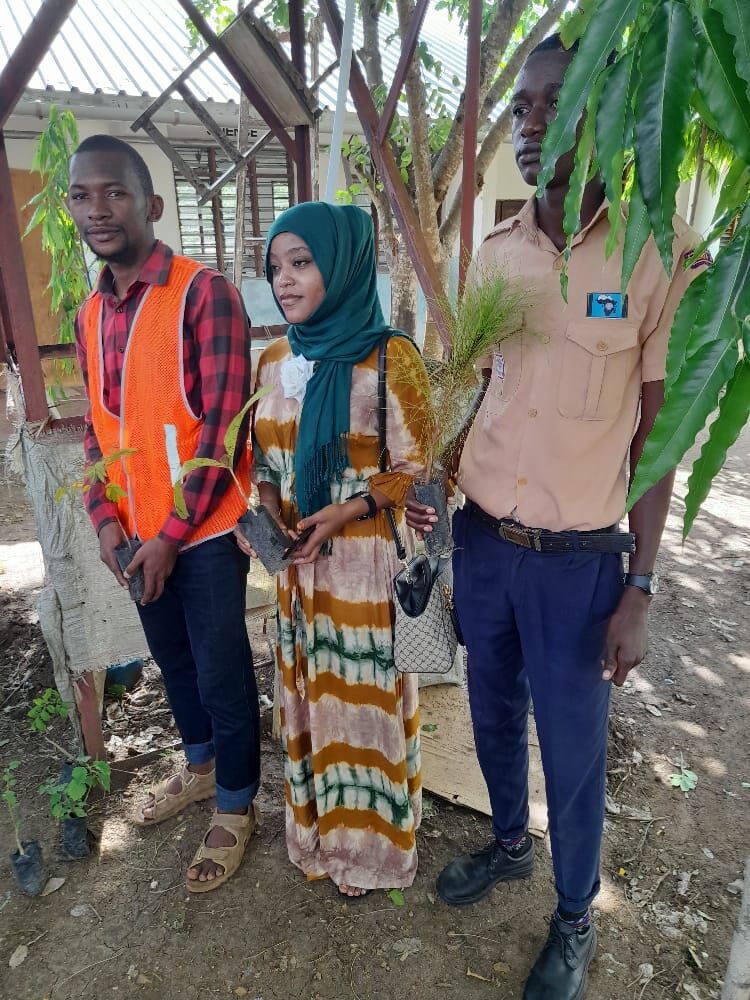
They will build something that lasts. They will build from within, anchored not in someone else’s blueprint, but in the quiet strength of their own faith, and the growing conviction that development does not need to erase identity to make progress.
It can grow through it.

Leave a Reply